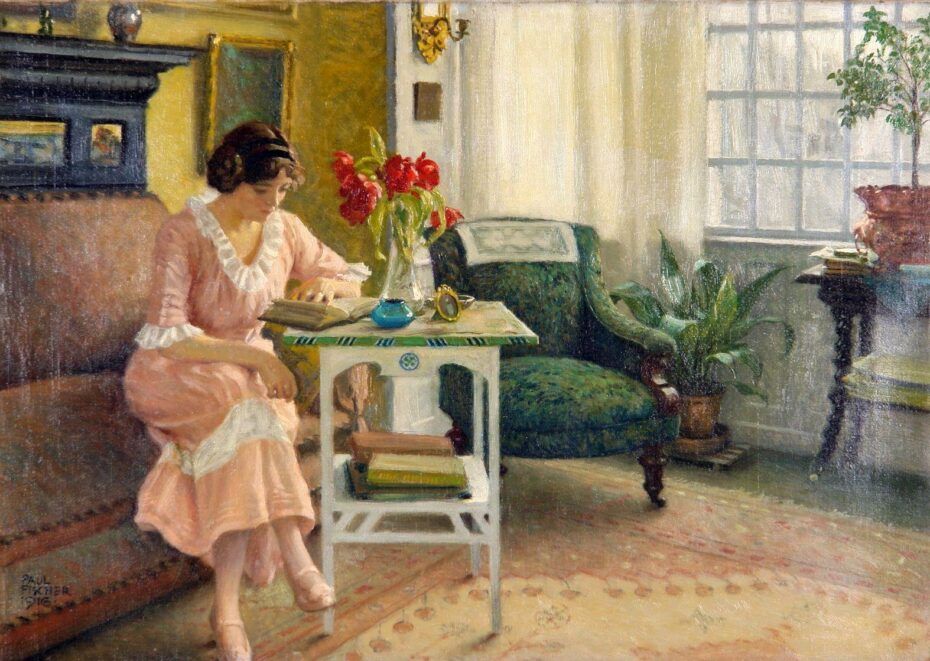
McGill Reads is a labour of love. It is for lovers of prose and lovers of poetry, for lovers of fiction and lovers of non-fiction. It is for lovers of authors and lovers of artists, and for people who love reading stories and those who love to tell a good story.
McGill Reads brings together a disparate group from across the University. It only exists thanks to input from a cross section of the McGill community: students, staff, faculty and alumni. All with different backgrounds, all at different stages of life and career.
It takes time to compile submissions, to format the page, to hyperlink every title so that curious readers can get more information with a single click. And it takes more time to search for the artwork that accompanies each McGill Reads article, collecting each title, date and artist for every work of art.
But the payoff is worth it. It is a real treat to read through so many intelligent, funny, and thought-provoking submissions from people across the University. Some submissions are beautifully-written stories in their own right. Others are short and succinct, almost haiku-esque.
All are greatly appreciated. Thank you for taking the time to tell us about the books you love and the books that you hope to love by the end of the holidays.
Wishing all our readers health, happiness and all the other good stuff for the coming year.
*****
Nigel Roulet, Distinguished James McGill Professor of Biogeoscience, is this year’s first contributor to McGill Reads. “Kim Stanley Robinson’s The Ministry of the Future, and John LeCarre’s last novel if I get it under the tree,” he says. When praised for answering the call for submissions so quickly, Roulet wrote “It is a function of age – these days, if I do not answer immediately, I will forget!”
In keeping with tradition, as winner of the Early Bird Award, Roulet gets a lifetime subscription to the McGill Reporter and, or course, our eternal gratitude.
*****
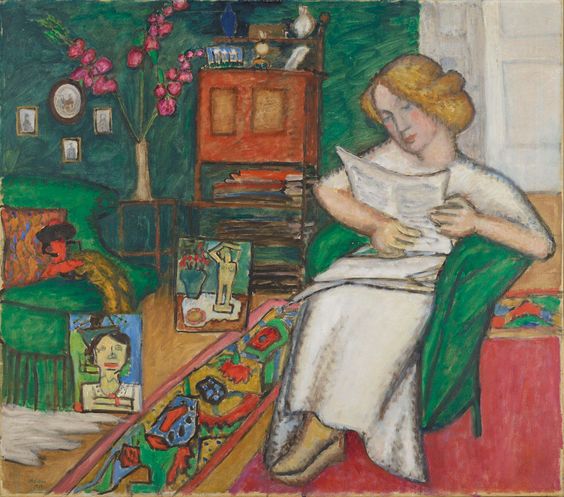
If Roulet wins the Early Bird Award, Will Straw takes the Under the Wire Trophy, submitting his selections mere moments before we posted our list. But, seeing as how the Professor of Urban Media Studies is one of the Original 17 contributors to the first McGill Reads list in 2013 (as is Roulet), we’re ready to cut him some slack.
“I just returned from Mexico City, where I gathered up what looks like some fascinating reading for the holidays. Jacques Galinier’s Una noche de espanto: Los otomies en la obscuridad, is about night-time culture among the Indigenous peoples of Mexico, written by a well-known scholar of the night,” writes Straw.
“I will also read Desde abajo, y a contracorriente!, a book about fanzines in Mexico City. I’m also looking forward to reading a new book by Quebec author/scholar Chantal Ringuet – Alys Robi a été formidable, a new look at the life of a woman who was one of Quebec’s biggest singing stars of the 1950s and 1960s. Then, because it looks fascinating, I will read Shiamin Kwa’s book Reading Frames: Thinking with Comics in the Twenty-First Century, which looks very smart and thorough.”
*****
At this point we’d like to give a warm McGill Reads welcome to Angela Campbell, Associate Provost (Equity and Academic Policies), who is submitting to our humble list for the first time. Here are the books she plans to tackle:
- The Art of Gathering: How We Meet and Why it Matters by Priya Parker. “Recommended by my friend and colleague, Kit Malo.”
- Harlem Shuffle by Colson Whitehead. “Because it’s Colson Whitehead.”
- Humans by Brandon Stanton. “Bought three copies of this for Christmas this year: one for my kids, one for my 2021 ‘Secret Santee’ (the person whose name I pulled in a holiday gift exchange), and one for me! Visually, this is a beautiful book – I cannot wait to read it.”
- Book of Italian Short Stories. “A tribute to my mom’s heritage and most thoughtful gift from my friend and colleague, Prof. Shauna Van Praagh – I am so looking forward to it!”
- Us against You “The sequel to Beartown, written by gifted Swedish author, Frederik Backman… if you have not read his book Anxious People, do yourself a favour and indulge – it is delightful!”
*****
Bruna Salhany is our kind of McGill Reads fan. “It’s the most wonderful time of the year – giving serious thought to my reading list during the University’s holiday break,” writes the Accreditation & QI Administrator.
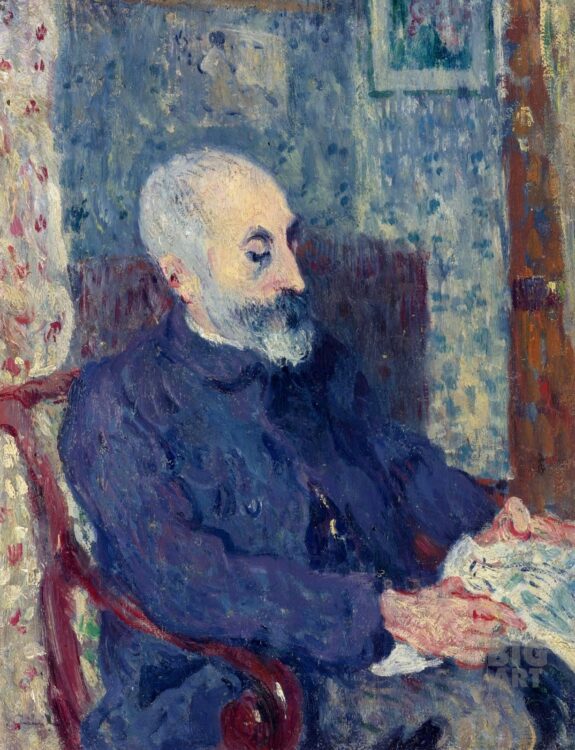
“My first book was found in a flea market this past summer and which I kept off reading specifically for the break. African Samurai by Thomas Lockley and Geoffrey Girard is the historical biography of Yasuke, history’s first foreign-born samurai. Sold into slavery as a child from Northeast Africa, Yasuke arrived in Japan as a protector of Jesuits and became a samurai in service of Lord Nobunaga – head of a powerful Japanese clan – in the late 1500s. In the few pages I’ve read so far, the book reads like a novel but is replete with drawings, pictures, and maps, and unearths a wonderful story told through Yasuke’s eyes. I know this is a book I will keep in my personal library.”
“The Elfstones of Shannara by Terry Brooks, whose writing is the perfect blend of humour and epic fantasy, is the next book on the list and tells the story of an ancient evil which threatens the Elves and the Races of Men,” writes Salhany. “Brooks has an inimitable writing style: you know you’re reading a novel, but it actually feels like you’re having a conversation with a friend.”
“And last but not least, my annual trip to Longbourn estate in Hertfordshire for a visit with the Bennett family. The character sketches in Jane Austen’s Pride and Prejudice are timeless, and reading this book during the holidays always feels like I’m back in the company of dear and cherished friends. I wonder if that makes me like Charlotte Lucas Collins…”
“Wishing everyone in the McGill community a very merry and happy holiday break, and a happy reading season!”
*****
Janet Boeckh (DipEd’69, MEd’77) and Lawrence Mysak (Prof. Emeritus, Atmospheric and Oceanic Sciences) recommend four books, all related to the global climate crisis. “We’ve ordered an electric car and are awaiting its arrival,” writes the environmentally plugged in pair. Their suggestions include:
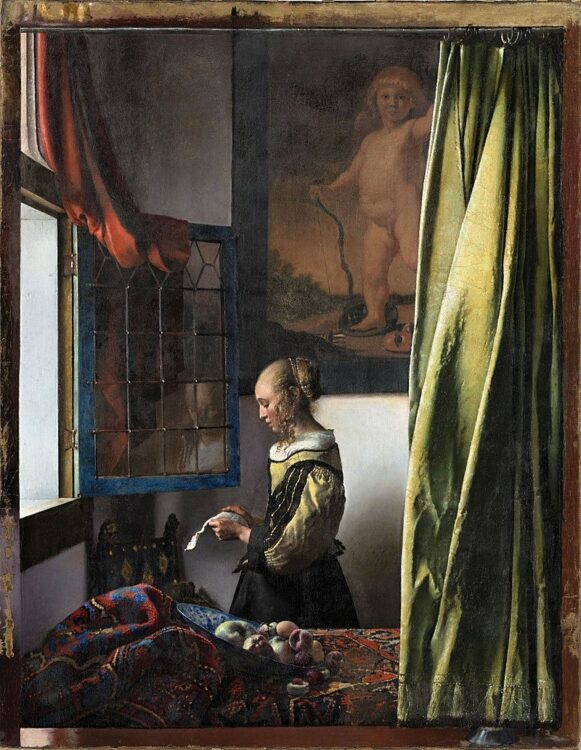
Michael Mann’s The New Climate Wars, “which details the lobbying by vested fossil fuel interests and underlines the urgent need to transition to sustainable energy. Michael is an influential climate scientist who worked on the 3rd IPCC report.”
Mark Jaccard’s The Citizen’s Guide to Climate Success. “A good review of policy issues related to climate change,” writes Boeckh. “He argues the need for both a price on carbon and government regulations on energy use to effectively transform our economy away from one heavily dependent of fossil fuels.”
A.E. Johnson & K.K. Wilkinson, eds. All We Can Save, Truth, Courage and Solutions for the Climate Crisis. “Short essays by people involved in the climate crisis, from scientists, innovators, designers, to activists, all women.”
Suzanne Simard’s Finding the Mother Tree. “Part memoir, part science by a pioneer in understanding the importance of mycelia in the health of trees,” writes Boeckh. “Fascinating read with huge implications for forestry and climate change.”
“We love reading the suggestions, and appreciated the beautiful book-related art from last year!”
*****
Carola Weil, Dean of Continuing Studies, sends word that she is reading the new biography of Angela Merkel by Kati Marton.
*****
“I’m making my way through the Wendy series by Walter Scott,” writes McGill Reads regular, Stephanie Wereley, Communications Officer, University Advancement. “It’s a comic book/ graphic novel series created by an Indigenous artist, and it’s laugh-out-loud funny. It pokes fun at Toronto and Montreal, among other Canadian destinations. And because the main character is an art student/ working artist, it satisfies my long-held fantasy of attending art school. (But judging by these books, I clearly wouldn’t have made it!)”
*****
Long-time McGill Reads contributor (even if he has to be cajoled at times) and voracious reader Daniel McCabe admits he hasn’t been his regular bookish self of late.
“I don’t know about you, but I found it was more difficult to read books this year – alarmingly so. It was harder to sustain the focus required to really dive into a book and immerse myself in its pleasures,” writes McCabe, Editor, McGill News Alumni Magazine. “I’m hoping that the holiday break will serve as a corrective and I’m encouraged by the fact that there are a bunch of books that I want to read.”
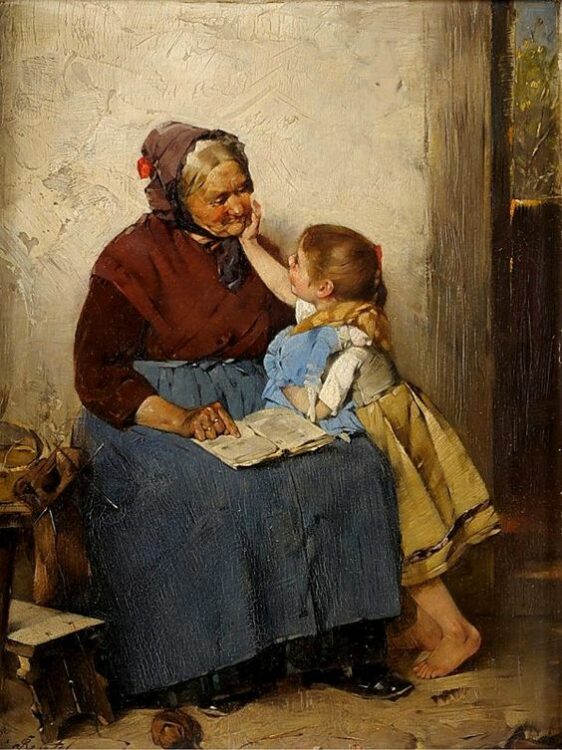
“The first one on my list is Klara and the Sun by Nobel Prize winner Kazuo Ishiguro. Its protagonist is a solar-powered Artificial Friend, and while the notion of examining humanity from the perspective of a sentient AI system is hardly new, I’m confidant that Ishiguro’s approach will be fresh (the fact that the book seems to be on almost every book critic’s top 10 list for 2021 bodes well),” writes McCabe.
“I sheepishly admit that I’ve never read any of Louise Penny’s books, even though the Knowlton-based mystery writer is an international sensation, and her beloved Armand Gamache character is based, in part, on her late husband Michael Whitehead, a longtime McGill medical professor,” says McCabe. “When I first heard about State of Terror, a political thriller co-written with Hillary Clinton, it sounded a little gimmicky, but the reviews have been strong. The book pairs Penny’s knack for developing memorable characters with Clinton’s in-depth knowledge of the behind-the-scenes maneuvering that takes place in international politics.”
“Finally, as the son of a cab driver, I’m looking forward to reading Marcello Di Cintio’s Driven: The Secret Lives of Taxi Drivers. It is an occupation that has always attracted more than its fair share of intriguing characters, many of them with colourful (and, at times, traumatic) pasts. ‘Each cabbie I met was a plotter and a schemer,’ said Di Cintio of the drivers he interviewed for the book. He meant that as a compliment.”
*****
“Here’s some highlights of mine from 2021 for your consideration,” writes Emily Love, Manager, International Student Development & Communications, who categorized her selections for us.
- Page turners: A Nearly Normal Family by M.T. Edvardsson and The Last Thing He Told Me, by Laura Dave.
- Good writing, narrative and characters: Both Brit Bennett books: The Mothers and The Vanishing Half, and Ann Napolitano’s Dear Edward.
- Dark torture-filled books: Blaine Harden’s Escape from Camp 14 (“A North Korean prison camp refugee memoir”) and The Light of Days, by Judy Batalion (“A compelling holocaust book with a focus on women and resistance in Poland”).
- What’s next: “Looking forward to seeing this holiday reads list, plus whatever my mom recommends (a retired librarian and book reviewer for Library Journal).”
*****
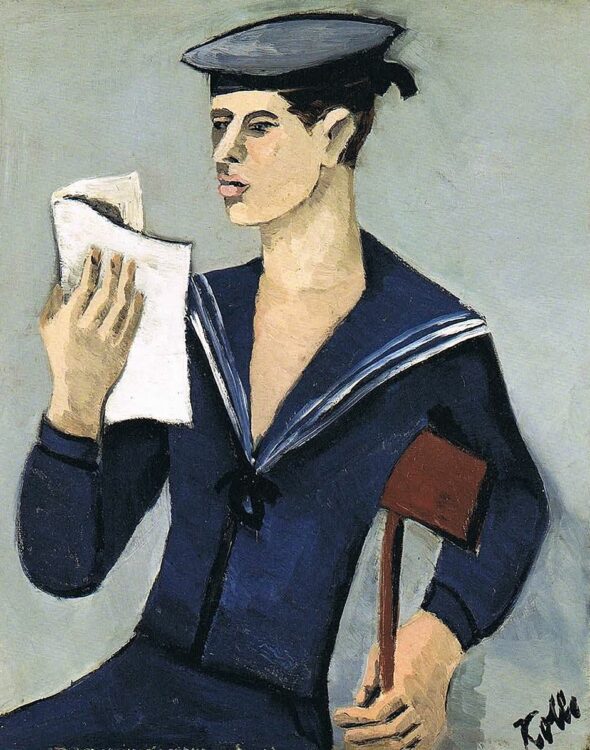
Postdoctoral Researcher and first-time contributor to McGill Reads, Gwyneth Anne MacMillan, believes in paying it forward. “I found quite a few books that resonated with me on the 2020 McGill Reads holiday list, so this year I wanted to return the favour and suggest some books that may resonate with my fellow readers,” she writes. “While reflecting back on a looooong pandemic year of reading at home, the Top 3 that stood out were:
Hench by Natalie Zina Walschots. “The heroine is a hench’man’ to the world’s evilest villain. Clever and enjoyable read, refreshing perspective and storytelling.”
The Listeners by Jordan Tannahill. “Eerie page-turner about Claire, who starts hearing a low hum, which no one else can hear? Well-crafted, beautiful story in a terrifying way, there wasn’t an unnecessary word in the entire book.”
Optic Nerve, Maria Gainza. “First in English from an Argentinian writer, snapshots of a woman’s life through an exploration of art, artists, paintings. Also like a trip to Argentina for us Canadian readers.”
“All female narrators! I just noticed this as I wrote these titles down. Excellent,” says MacMillan.
“And for the holidays, I will dive into the new book, The Dawn of Everything by David Graeber & David Wengrow. I suppose the title says it all. Apparently this book is about our understanding of humankind’s past and future and is reported to be ‘dramatic” and “fundamentally transformative”. We will see! Hopefully it will be more inspiring and nuanced than other “all encompassing” books I have read (ahem, Sapiens).
*****
“This year, I have only one holiday reading goal: Michael Lewis’ The Premonition which has been waiting on my bookshelf since the spring,” writes Sarah Delisle, Emergency Management & Preparedness.
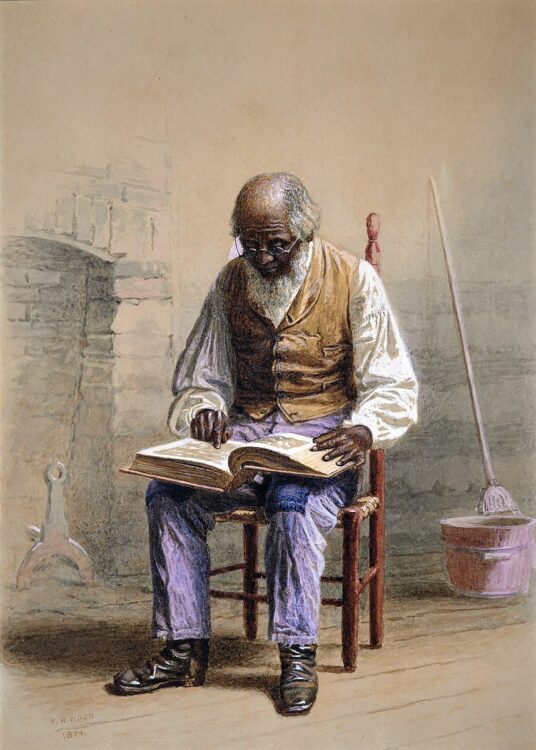
Delisle’s recommendations for fellow readers include:
Matthew Walker’s Why We Sleep: Unlocking the Power of Sleep and Dreams. “An enlightening look at the importance of sleep for overall well-being and a call-to-action to get more shut-eye every night! If ever you needed a good reason to get more sleep, this is it. Definitely a must-read.”
Lauren McKeon’s Women of the Pandemic: Stories from the Frontlines of COVID-19. “An eye-opening series of stories from across Canada about women’s experiences of COVID-19 as workers in the service and healthcare sectors, caregivers, partners, and mothers.”
Lulu Miller’s Why Fish Don’t Exist: A Story of Loss, Love, and the Hidden Order of Life. “A surprising look at the life of biologist David Starr Jordan.
“Also, audiobooks really helped me salvage my reading goal for the year,” says Delisle. “Did you know that McGill members have access to OverDrive’s vast e-book and audiobook collections via the McGill Library? Happy Reading.”
*****
Andrea Di Stefano, Manager Registration, Programs, & Degree Evaluation, Enrolment Services, submitted the following suggestions:
- Leonardo da Vinci by Walter Isaacson. “Almost through this biography, and it’s been amazing exploring the mind of one of history’s greatest geniuses”
- The Silk Roads: A New History of the World by Peter Frankopan. “This was originally bought as a gift for someone else, but once I opened it I knew I had to read it myself first!”
- Operating Manual for Spaceship Earth by Buckminster Fuller. “Everything I’ve heard about this author makes me think I’ll love this one.”
- Unveiled Mysteries by Godfrey Ray King. “A spiritual classic for me.”
*****
Chris Buddle is also one of the Original 17, the exclusive club of contributors to the very first McGill Reads list in 2013, Back then, he was a professor of Forest Insect Ecology in the Dept. of Natural Resource Sciences. Today, Buddle is Associate Provost (Teaching & Academic Programs).
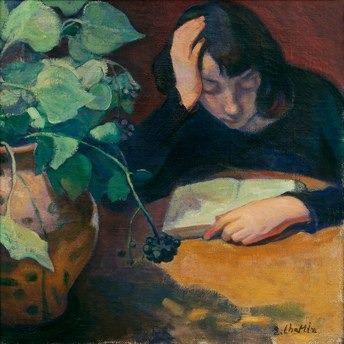
“First up for me is a novel called Ivory Shoals, by John Brandon, described as ‘ Rich in deadpan humor as well as visceral details that illuminate a diverse cast of characters.’ Looks to be full of drama – a Floridian quest journey – full of adventure. Can’t wait to dig into it!”
“In the new year I’ll be looking to dig into a new crime series as well, and I think it’s time to try out some of the Karin Slaughter books – I think I’ll start with Triptych (which I believe is the first in her Will Trent series). Everyone tells me her series are top-notch, and the best kind of page-turners.”
“I also have some non-fiction books on my list: first up is Wanderlust – a history of walking – by Rebecca Solnit,” says Buddle. “It’s a book about walking, and I love to walk. I love to walk and think, and think about walking. Walking is more than an action and activity -it’s also the perfect time for reflection and problem-solving (big or small). I’m already a few chapters into this book, and it’s proving wonderful so far.”
“I would also like to read Jenny Odell’s book called How to Do Nothing: Resisting the Attention Economy, and although it was published before the pandemic, I’m guessing it will be more relevant than ever. I hope that over the holidays, my attention can be best focused on books, rest, and time with my family.”
*****
“This year I found myself reading books that explore “natural” disasters, and other kinds of intersections between humans and their environments,” says Chantelle Thauvette, Academic Projects Officer, Graduate and Postdoctoral Studies. “Here are some of my favourites from the past year:”
- Exhalation by Ted Chiang
- A Children’s Bible by Lydia Millet
- Salvage the Bones by Jesmyn Ward
- On Immunity: An Inoculation by Eula Biss
“Looking forward to others’ recommendations!”
*****
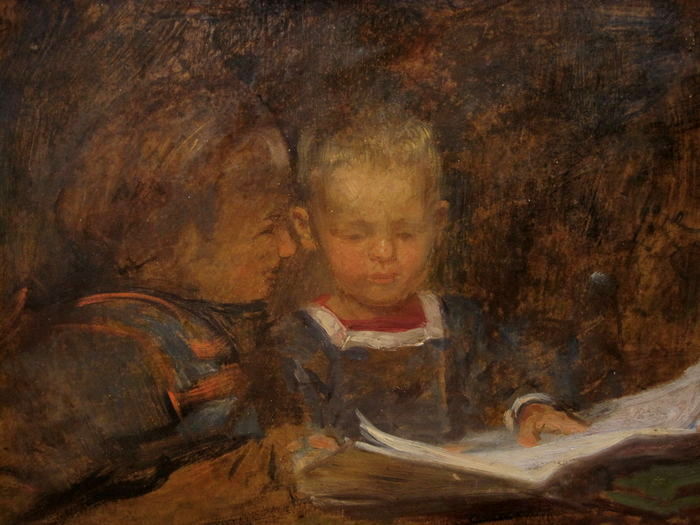
“I am a fourth-year law student involved in various advocacy campaigns and initiatives in the areas of anti-Black racism, education law, black economic empowerment, and entrepreneurship,” writes Fanta Ly. “Naturally, my leisure readings always draw me back to things I am passionate about. Over the break, I’ll keep it short and sweet with one and only read that I started, and I can’t wait to get back to right after exams: The Fire That Time: Transnational Black Radicalism and the Sir George Williams Occupation by Ronald Cummings, Nalini Mohabir, eds.”
“This read is incredibly meaningful and important to me as I’ve been thinking about how addressing the anti-Black racism embedded in all our institutions requires a combination of various forms of advocacy, including the more disruptive approach,” writes Ly. “One of the most meaningful aspects of my role as Co-President of McGill’s Black Law Students’ Association (2020-2021) was providing recommendations for McGill’s Policy on Harassment and Discrimination and advising students who have faced discrimination and sought redress through university mechanisms for dispute resolution. Despite the power asymmetry at play when students seek redress and accountability from an organization that holds great power over them, the Sir George Williams Affairs reminds me that Black student activists have always demanded that our institutions do better so those who follow us can realize their potential in spaces that weren’t designed for us. This book allows me to situate my values, character, and most importantly the type of impact I want to have within a long tradition of Black solidarity and advocacy.”
*****
This year we received another joint submission from McGill Read regulars Sean Goldfarb and his mother Janice.
Sean, a Master’s student in Cell Biology, submitted the following books:
- Shogun by James Clavell. “This is the third book in the so-called Asian Saga, set in 1600s Japan and the clash between the Samurai society, the Portuguese Jesuits and an English sailor. Shogun is based on the life of the first English Samurai and considered by some to be a Japanese history resource that does better than textbooks! It’s very well-written and the kind of book you can get lost in.”
- The New Corporation by Joel Bakan. “A sequel to the famous (Canadian) book The Corporation. It details how “socially conscious” corporations are not as good as they seem at first blush.”
- “I was recently recommended The Scoop, Decline and Fall, and Brideshead Revisited by Evelyn Waugh. The first two books are supposed to be very dry humour, while the second is more of a drama,” writes Sean. Fun fact: Mr. Waugh had married a woman named Evelyn. Friends used to call them ‘He-Evelyn’ and ‘She-Evelyn.’
“My mother Janice, M.Sc. Physiology, has these picks:”
- Underestimated by J. B. Handley. “An inside story of someone living with non-speaking autism and how they learned to communicate their intelligent thoughts and mature feelings.”
- The Home for Unwanted Girls by Joanna Goodman. “It’s a story set in Montreal in the 1950s. It’s a very well-written novel about a woman and the illegitimate daughter she had to give up.”
*****
Biru Zhou has an older, but timely book for today’s readers to consider.
“I would like to submit an old book that is practical, useful, and still relevant even 67 years later: How to Lie with Statistics by Darell Huff,” writes Zhou, Senior Advisor, Research Data Management Strategic Initiatives, Office of the Vice-Principal (Research and Innovation). “This is a book written by Huff, a journalist, for general readers who have no background in statistics. He introduced examples and cases how misuses of statistics or misinterpretations of statistical results can mislead readers. With all the data and graphs floating all over world about COVID, I think it is time to pick up this good old book again so that we, general consumers of data, will learn about how not to be so easily deceived by the seas of information and data.”
*****
“I’ve got a solid couple of weeks off for the holidays and really nothing better to do than lie on the sofa with dog, cat, and probably over-ambitious stack of books,” writes Jane McAslan Senior Library Clerk – Lending and Access. “Mind you, a few of them are quick reads, so you never know, maybe I’ll actually read them all!”
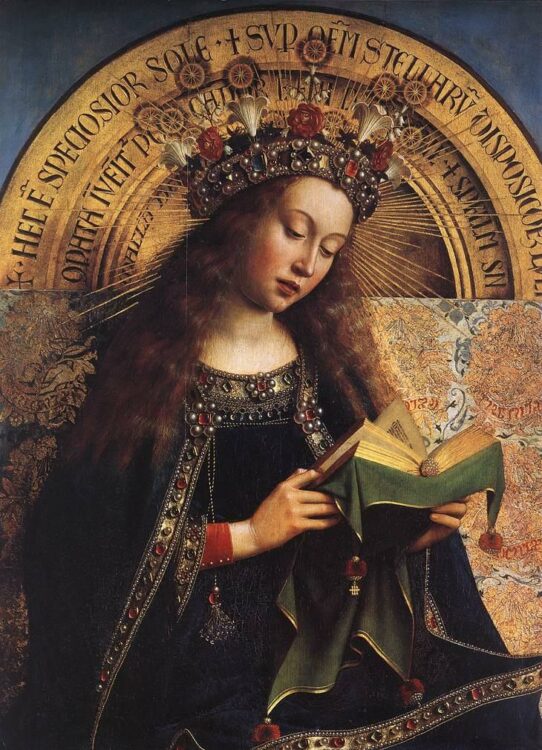
“First up, a few mysteries: Mick Herron’s Why We Die is literally the very last book by him that I haven’t read; I discovered him early in the pandemic and sucked back all his spy stories like candy. He’s excellent, truly the rightful heir of Le Carre and Deighton. But funnier. This last book is one of his mysteries, not a spy thriller, but I’ve enjoyed all the rest of those too, so I fully expect to enjoy this one.”
“Then there’s Arsenic and Adobo by Filipina-American writer Mia P. Manansala, which just looks like fun: a kitchen mystery. I’ve never read her, but hey, The Guardian gave this one a great review so how bad could it be?”
“And final mystery, Richard Osman’s The Man Who Died Twice, second in his Thursday Murder Club series. The first was great fun, so I’m looking forward to this one too,” writes McAslan.
“Apart from mysteries, I have a few other things lined up as well: The Intuitionist by Colson Whitehead, mostly because I really want to read his most recent book Harlem Shuffle but the library copy is out. (In the unlikely event my hold on it comes up before the holidays, that’s definitely on the list.),” she says. “But actually, it’s glib to say I only want to read The Intuitionist because I can’t get his latest – I’ve been meaning to read it for ages, it looks really intriguing. Someone described it as retro-futurist, which makes sense if it’s anything like The Underground Railroad, although I gather it’s less harrowing than that was.”
“I’m also waiting for a library hold on Sally Rooney’s Beautiful World Where Are You with no expectation that it will come in before the holidays, but I’d love if it did. In the absence of that, though, I have J.M.Coetzee’s The Childhood of Jesus, which is brief, but if the rest of his books are anything to go by, probably shattering. And having thoroughly enjoyed A Gentleman in Moscow by Amor Towles, and his first, Rules of Civility, I’ve managed to get a copy of his follow-up novella to that, Eve in Hollywood, which is bound to be a good afternoon’s read.
“Finally, in non-fiction, I am halfway through Mark Bittman’s Animal, Vegetable, Junk: a History of Food from Sustainable to Suicidal and mean to finish it,” says McAslan. “The title says it all, really: it’s the story of how we got into the globally suicidal mess that is industrial agriculture, and it’s fascinating. He’s a very engaging writer, but truth be told, I have read quite a lot in this area so I can’t say it’s new, but I look forward to finishing and seeing what his view is of the way forward.”
*****
Crystal Noronha, Graduate Studies Officer, Faculty of Dentistry, has two books lined up for the holidays.
- Fighting for a Hand to Hold, by Dr. Samir Shaheen-Hussain. “A book that exposes the colonization and displacement of Indigenous children.”
- The Promise by Damon Galgut. “This book was submitted as one of the choices of our book club.”
“Apart from reading, I will catch up on ‘switching off and doing nothing’, an aspect we missed during our hectic year,” she writes.
Victor Chisholm is a long-standing contributor to the McGill Reporter. If we issue a call for submissions for something – anything – Chisholm is sure to take part. We ask for stories about women who inspire, he submits. Vacation photos, he submits. And, of course, he’s participated in pretty much every McGill Reads since 2013.
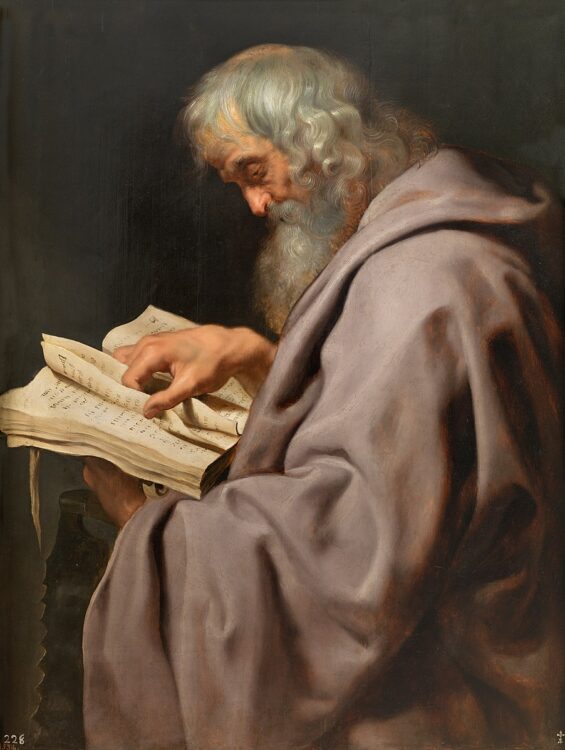
“I would like to once again plug the Cundill History Prize as an inspiration for my reading lists,” writes Chisholm, Student Affairs Administrator, McGill Faculty of Science. “I have been reading The Horde: How the Mongols Changed the World by Marie Favereau and really enjoyed discovering more about a culture and empire that functioned quite differently from what I would ever have guessed. My library loan expired before I could finish it, but I hope to take it out soon to pick up where I left off.”
“A few years ago, I was cycling along the Route 138 on the north shore of Quebec on a hot day, and pulled off the main road for some ‘refreshments’ (Obviously that’s code for ‘ice cream’). I think this was in the Innu community of Pessamit,” says Chisholm. “I didn’t spend more than about 20 minutes there but sensed a different perception of time, and unexpected laughter. Since then I’ve been intrigued to learn more about Innu culture. I have my eyes set on Manikanetish, by Naomi Fontaine. I owe this to a prior edition in McGill Reads by my friend Claude Lalande for Kuessipan by the same author.”
“Faire les sucres by Montreal author Fanny Britt: This is a repeat from last year; confession, my reading list is rather aspirational; but I am really looking forward to this one. Personally, part of the appeal is that I sang with Fanny in a youth choir many years ago, but I don’t you need a personal connection to choose Fanny or her books. Based on the reviews I’ve seen, I won’t be Fanny’s sole fan.”
“I would also like to make a shout-out to McGill Librarians! They’ve really helped me sort out some challenges getting eBooks to work. I am very grateful for the Chat with a librarian service on the Library website.
*****
“I think the books that people should read over the holidays (and the next few months cause they’re chunky books) are Brandon Sanderson’s The Stormlight Archive series and the Mistborn trilogy by him as well,” says Cassy Popovich, a U2 Food Sciences student. “They’re fantasy novels in an overarching universe in which all the books are interconnected (although you can read them all separately as well). They’re fantastic novels!”
*****

“I feel like I have missed a few of the McGill reads submissions, so I am delighted to share my current and holiday reads,” says Sacha Young, Senior Ethics Review Administrator, Institutional Review Board, Faculty of Medicine and Health Science.
“The first book is by Rian Hughes, XX A Novel. It is an interesting read in science fiction, as well as in design format,” writes Young. “The story centres around the detection of a signal of extra-terrestrial origin and the protagonist’s belief that he and his associates at an AI tech start-up can interpret the message. The author draws on various art movements of the twentieth century as well as from redacted NASA reports, articles, a novel, and transcripts, all incorporated into his book. The publisher describes it as a deconstruction of language and form that explores how ideas propagate, and humanity’s unique place in the universe. It is an interesting format for the novel. I find that I am also pulled into modes of reflection and learning while taking in the various texts and images used in the book – I have travelled down several rabbit holes in reading and engaging with this novel.”
“Not too far off from this exploration of ideas, I am also reading Adam Pendleton’s Pasts, Futures, and Aftermaths. This hefty tome (a theme with this season’s reads) of art history / literature is a ‘revisit’ of the artist’s previous publication, The Black Dada Reader,” says Young. “How would I describe it? A collection of essays, poetry, interviews, and excerpts that have influenced Pendleton’s approach /experiment with art. Others have called it a critical examination of language and historical narrative from the cultural and aesthetic lens of an African-American. Personally, I am drawn into Pendleton’s work and the weighty contrasts of black and white, often mixed media, on canvas.”
“Then there is Jorden Abel’s, Nishga. All I can say is that the author has given voice to several of my own thoughts and feelings as a person of mixed ancestry – Anishinaabe, Afro-Caribbean, with a dash of Scottish and Finnish to bring together that triad of indigeneity, colonialism, and slave descendance. Sometimes life is a mixed bag of nuts.”
*****
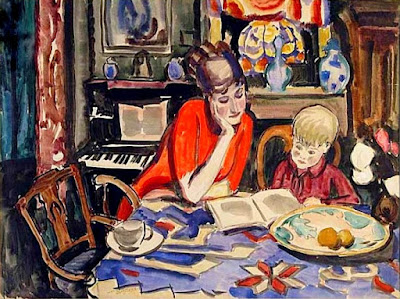
Karen Sciortino has a to-read list that is nothing if not eclectic. To start, the Senior Admissions Officer at Enrolment Services is ordering recently released The Pyrocene by Stephen J. Pyne and Math Art: Truth, Beauty, and Equations by Stephen Ornes.
“The Pyrocene (non-fiction) is about what happens at a time where Earth is increasingly ‘fire-receptive’ and how the relationship between humans and fire broke down as we began to deliberately burn fossil fuels,” writes Sciortino. “The author describes this change as the start of the Pyrocene era. It’s the geography that interests me here.”
“Math Art because I’ve been increasingly interested in the intersection of math and art since participating in a gallery show that was based on algebra and geometry,” she says. “My piece for that show played with zero to infinity. I’d like to explore further than infinity ;)”
“As I write this, I am contemplating Baron’s 501 Spanish Verbs by C. Kendris and T. Kendris with a somewhat resigned look,” says Sciortino. “I really need to spend more time learning to conjugate common Spanish verbs before returning to class in January.”
“For some light reading, I have Fredrik Backman’s A Man Called Ove lined up. I started using an e-reader during covid and find myself ordering books and authors outside my usual focus. Since this can get expensive pretty quickly, I am always looking for cost-effective (read cheap) books with great ratings. LOL!”
*****

Jim Nicell has a problem… and his wife is the first to admit it.
“When my wife discovers me sneaking books into the house, she says that I have a ‘book problem,’ but she readily admits that there are worse addictions to have,” writes Nicell, Dean of the Faculty of Engineering and McGill Reads legend. “I have far too many books on my ‘to-read’ list right now (which is not really a list, but a set of shelves holding my unread books), which gets longer and longer by the year, rather than shorter.”
Not surprisingly, Nicell has a few books lined up for the holidays.
“The first, which I am just about to begin is called The Great Stain: Witnessing American Slavery by Noel Rae. This is going to be tough read, but I have come to realize that it is only through personal stories like those told in this book can we even begin to understand and confront discrimination around us,” says Nicell.
“After this, I will read When the United States Spoke French: Five Refugees who Shaped a Nation by Francois Furstenberg. This just sounded too interesting to let pass by and I am looking forward to reading it, during the week I will spend with my wife’s family (after a very long two years apart) on a farm in southern Manitoba.”
*****
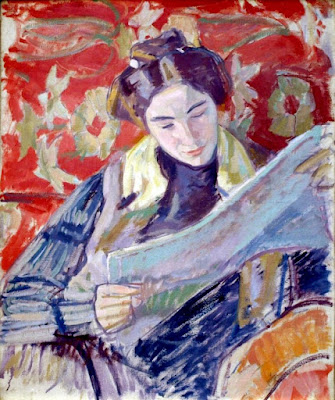
“Another year, another opportunity to commit publicly to reading the Pevear and Volokhonsky translation of War and Peace,” writes Melanie Dirks, Professor and Director of Clinical Training in the Department of Psychology. “And although my intentions in this regard are annually excellent, I am once again going to find myself distracted, this year by Hermione Lee’s new-ish biography of the playwright Tom Stoppard. One of the best books I read this year was Mark Harris’ biography of Mike Nichols. Mr. Stoppard had a supporting role in that tale, and I’m looking forward to spending the holidays in his company.”
“Thank you so much for doing this every year! I always look forward to it.”
*****
“Next on my reading list is The Conjure-Man Dies, published in 1932 and said to be the first detective novel written by an African-American. The author, Rudolph Fisher, was a distinguished physician and researcher who specialized in radiology. Sadly, he died two years after the novel’s publication at the age of 37, seemingly as a result of exposure to the X-ray machines in his lab,” says Julie Fortier, Communications Manager, Facilities Management and Ancillary Services. “I then plan on reading McGill French literature professor Alain Farah’s latest novel, Mille secrets, mille dangers. The novel is ‘a day in the life’ of the protagonist – his wedding day, to be exact. Autobiographical, part drama, part comedy, it touches on immigration, family and illness. After that I’d like to tackle Dostoevsky’s Crime and Punishment, if for no other reason than I’ve never read it.”
*****
“I am a postdoctoral researcher in infectious disease epidemiology at McGill and would like to thank you very much for compiling the annual McGill Reads holiday book list,” says Giorgia Sulis of the Department of Epidemiology, Biostatistics & Occupational Health at the School of Population and Global Health. “For this year’s edition, I would like to contribute with my recommendations:”
Books I am planning to read during the holidays:
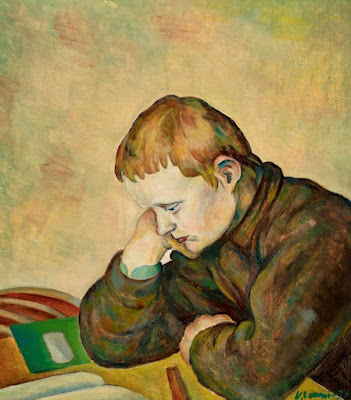
The Code Breaker: Jennifer Doudna, Gene Editing, and the Future of Human Race, by Walter Isaacson. “This is the biography of an amazing scientist, Jennifer Doudna, who developed a revolutionary gene editing technology (CRISPR) and, for this work, received the Nobel Prize in Chemistry in 2020. To add interest to an already exciting subject, the author is well-known for his fascinating biographies of many extraordinary men and women.”
The Hand of Fatima (Original Spanish: “La mano de Fátima”), written by the Spanish novelist Ildefonso Falcones. “I have read all other books from this author and loved each of them, so I am expecting great things from this one too, which is a historical novel set in 15th century Spain.”
Books that I have recently read and would strongly recommend:
Vaccinated: One Man’s Quest to Defeat the World’s Deadliest Diseases by Paul A. Offit. “This is the story of a man (Maurice Hilleman) who devoted his entire life to develop vaccines, giving a substantial contribution to vaccinology and public health. A very interesting read for anyone who wants to know more about some of the vaccines that have dramatically changed the world and our lives, other than an inspiring example of perseverance and dedication to science.”
Barkskins by Annie Proulx. “This is a truly epic novel covering over three centuries on the footsteps of two immigrants to New France and their descendants. Besides the exciting vicissitudes of the various characters, this book provides insights into the roots of racism and oppression at the expense of Indigenous peoples across North America and particularly in Canada. It also gives a lot of food for thought regarding our relationship with the environment and the consequences of an unscrupulous exploitation of natural resources.”
The Human Factor by Graham Greene. “For those who love good spy stories, this is a must read! Greene never disappoints when it comes to describing the inner nuances of human nature with a perfect mix of suspense, (dark) humour and unexpected twists. Perfect choice for some relaxing yet exciting time during the holidays.”
*****
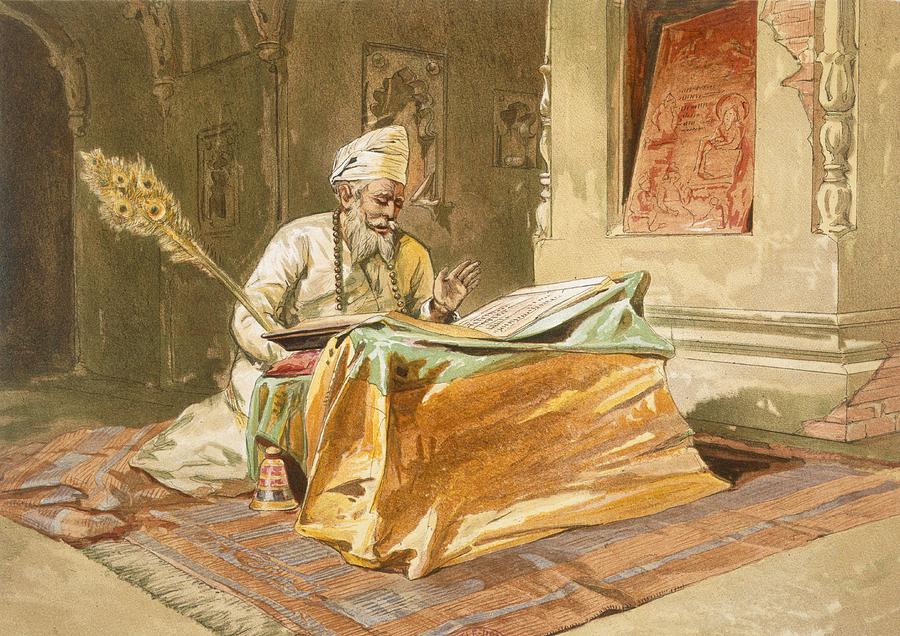
Robert Leckey, Dean of the Faculty of Law, has submitted a what he calls “a mix of things read and things on the reading or wish list.”
Leckey’s recommendations include:
Michel Jean’s Tiohtiáke – “a look into life on the streets and in the squares and parks of Montreal by Innu journalist and author Michel Jean.”
Brenda Cossman’s The New Sex Wars: Sexual Harm in the #MeToo Era – “a call to transcend binaries and scholarly and activist oppositions in order to find common ground as we think through sexual harm and the roles of law and social media in addressing it.”
“On my Christmas list (family members have been notified):”
Louise Penny, The Madness of Crowds “My expected escape between bouts of grading).”
Colm Tóibín, The Magician – “Having read a number of his novels, I’m keen to dive into this one.”
*****
Cynthia Lee could hardly contain her enthusiasm for her recommendations, resorting to all caps in her email to get her point across. “I LOVED both these books,” gushed the Associate Director, Media Relations, Communications and External Relations. Lee’s choices: The Weight of Sand by Edith Blais and Everything Is Fine by Vince Granata.
“This was a good reading year for me,” writes Jan Bottomer, Music and Arts Career Advisor, Career Planning Service. “Standouts I’ve been recommending widely include:
- House of Glass: The Story and Secrets of a Twentieth-Century Jewish Family by Hadley Freeman
- The Broken Earth Trilogy by N.K. Jemisin
- Four Thousand Weeks: Time Management for Mortals by Oliver Burkeman
“Over the holidays I’m hoping to start Becky Chambers’ Wayfarers series which I’ve heard good things about,” says Bottomer. “I’m also looking forward to borrowing my Mum’s copy of How to Pronounce Knife by Souvankham Thammavongsa and reading book six in the action-packed Explorer Academy series by Trudi Trueit to my 9-year-old son.”
*****
Nothing wrong with supporting family members, right? Especially if they are up-and-coming writers with a critically acclaimed debut novel. “I have started Radiant Fugitives a novel written by my cousin Nawaaz Ahmed,” says McGill Reads regular Abida Subhan, Department of Animal Science and Department of Natural Resoure Sciences. “I have ordered The End of Your Life Book Club written by Will Schwalbe. It was on the best seller list a couple of years ago. I’m hoping to get some book recommendations too.”
*****
Elena Bennett, Canada Research Chair in Sustainability Science, has compiled an ambitious reading list for the holidays.
“Next up on my fiction reading list is Amor Towles’ Lincoln Highway. He has this amazing ability to weave historical detail into deeply engrossing stories with complex, fully rendered characters. I’m looking forward to digging into this latest one,” says Bennett.
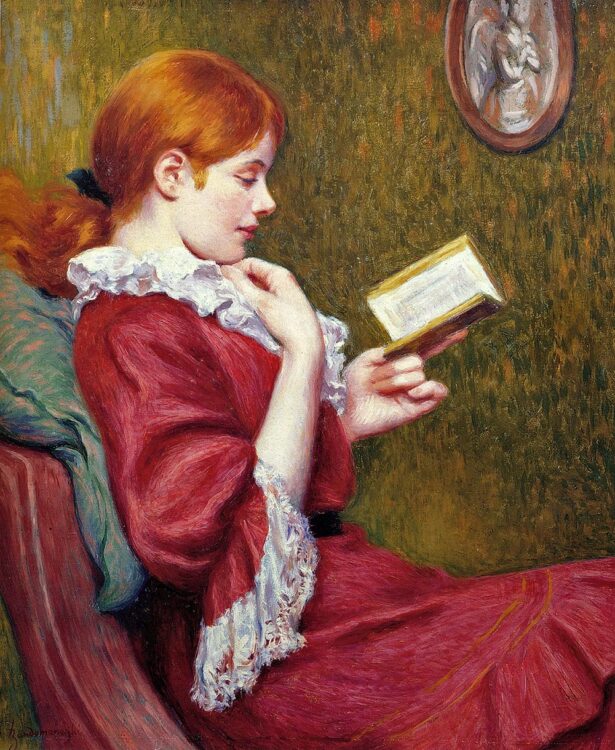
“Along the lines of next books by writers whose last books I loved, I’m also planning to read Bewilderment by Richard Powers, whose Pulitzer Prize winning Overstory was one of my favourites on people and environment from recent years.”
“I’m looking forward to Termination Shock by Neal Stephenson. Stephenson’s take on science fiction is always wide ranging and imaginative, and he digs deeply into exploring what it means to be human in a complex world,” writes Bennett. “After enjoying climate fiction (last year’s list) with Kim Stanley Robinson’s Ministry for the Future, which focuses on global economic policy and individual action as drivers of climate solutions, I’m curious about Stephenson’s book, which I understand focuses on the potential, and considerable potential dangers, of geoengineering, another proposed solution to our climate problems.”
“In non-fiction, two favourites that I’ll pick up again are Hope in the Dark by Rebecca Solnit (an old favourite of mine which explores the idea that hope is a commitment to act in a world where the future is both unknown and unknowable) and Kim Nicholas’ excellent debut Under the Sky We Make. Kim’s book takes on the ways that individuals can effect real, significant, and lasting change to solve the climate problem and is a must read to anyone trying to figure out how and why the climate crisis should cause them to change their daily lives.”
“Finally, one I will buy for my husband for Christmas and then steal to read myself is The Dawn of Everything by David Graeber,” says Bennett. “It fits right in with the rest of my list, I guess, in that it shows how human choices have influenced the world around us for thousands of years.”
“Thanks for doing this. I always look forward to the list for more ideas of great books to read.”
*****
“The first on my reading list is Fight Night by Miriam Toews. The book is blurbed as ‘a funny, smart, headlong rush of a novel full of wit, flawless writing, and a tribute to perseverance and love in an unusual family.’ Sounds like holiday reading to me,” writes Meaghan Thurston, Associate Director, Research Communications and Marketing.
“Next on the list is The Strangers by Katherena Vermette. I was blown away by Vermette’s book, The Break, a heartbreaking novel set in Winnipeg’s North End,” says Thurston, “I am currently re-reading Rachel Carson’s Under the Sea Wind. I picked it up again to cure my homesickness for Nova Scotia, but also because Carson’s writing is absolutely breathtaking. Finally, I hope to ‘borrow’ the gift of the Dune trilogy I bought for my husband for Christmas. I just finished book one and I can’t wait to keep reading the series. I hear it gets (even more) weird!”
*****
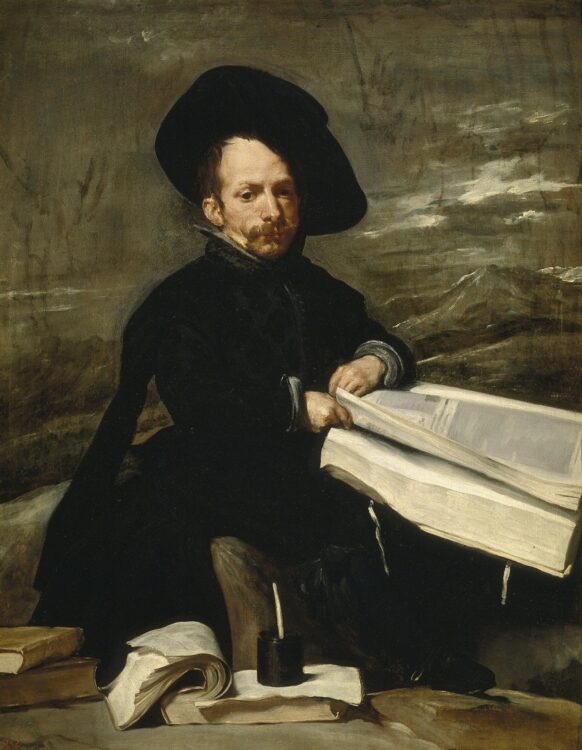
“I had a goal to read 100 books this year, but once I started my MBA in September, I haven’t had much time to read for pleasure! I am looking forward to the holidays when I can hopefully curl up with a good book and some mulled wine before starting my second semester,” writes MacDougall.
Kim Stephenson is a longtime McGill Reads supporter (one of the Original 17), not that surprising seeing as how she’s the Trade Buyer at Le James – McGill University Bookstore. Here are her selctions:
- April in Spain by John Banville. “The title alone!”
- Renegades by Barack Obama and Bruce Springsteen, “because, well, if McGill ever wanted a course on Bruce, I could teach it. And this looks like a textbook I would use.”
- New York, My Village by Uwen Akpan. “Who could resist this review? ‘And it’s the great bedbug novel of New York City we have all been waiting for, some of us without knowing it! I adored this book. — Elif Batuman, Pulitzer Prize finalist and author of The Idiot'”
*****
“I did enjoy Patricia Neal’s autobiography As I Am,” writes Liliana Cetola, Administrative Assistant at the Neuro. “I decided to read it after I saw the movie The Fountainhead, starring Gary Cooper. I’m a fan of his. They had an off-screen love relationship and I was curious to hear her side of the story.”
*****
Last on our list but first in our hearts, the inimitable Bud Martin closes out this year’s McGill Reads. Thoughtful, smart and funny, Bud is one of those people who helps keep this whole enterprise together. The human enterprise, that is.
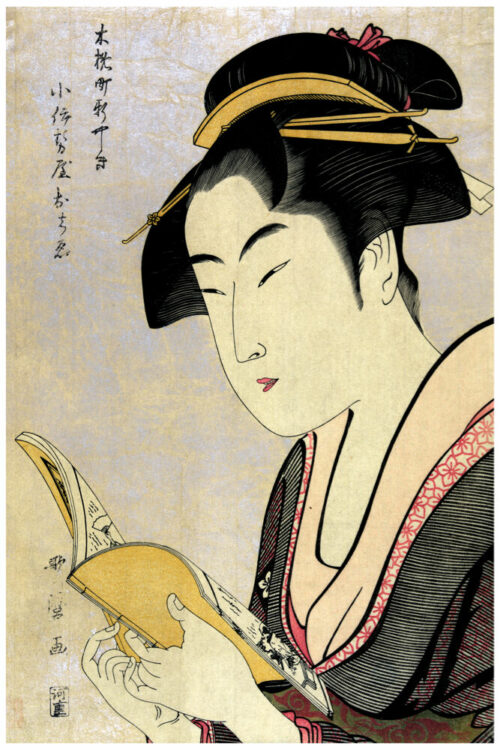
“In 2015, a kindly neighbour recommended Biblioasis’ reprint series of Victorian ghost stories, and I got hooked. To help revive the British tradition of reading a ghost story on Christmas Eve, the small press publishes three different stories each December,” writes Martin. “My faves are the ones that are just an excuse for the author to ramble on in ridiculous detail about some niche passion (collectible plates, railroad switchyards, abandoned freight ships), with a bit of supernatural stuff slapped on at the end.”
“The pandemic has reinforced how important it is to stay connected. I realized I hadn’t seen that kindly neighbour since well before March 2020, so I thought I’d check in and thank him for turning me onto the joys of Victorian ghost stories. Last week, poinsettia in hand, I toddled over to his house.”
“Instead of a doorbell, my kindly neighbour has an iron dragon-shaped door knocker; it’s modelled on the griffin-shaped banner holder on the exterior of the Palazzo Grisoli in Rome. (You might know the building as where Silvio Berlusconi announced his resignation as Prime Minister in 2011.) My knock went unheeded, so I rapped again. The knocker made a really loud thud because it was created from a single iron bar, quickly bent into shape while still hot from the forge. (Okay, yes, the wings and feet are separate iron pieces that have been riveted on.) Believe me, that thing is heavy. Again, no answer. So I knocked a third time, admiring the knocker’s spontaneous Siennese style that dates its design to no later than the first quarter of the 16th century. As we all know, Italian door knockers got pretty lousy after that, but this knocker is something else.”
“I swear I saw someone peek out from behind a curtain, so I kept knocking. Each time, I grew increasingly enamoured of the knocker’s strength and liveliness of form, which I’d say puts it easily among the best work of the Tuscan Renaissance blacksmiths. (And who could compete with Tuscany? Milan?! Sure, Filippo Negroli made a mean set of armour, but his door knockers were a joke.)”
“Wearily, I conceded defeat. I turned and saw Francine, my mail carrier, across the street. “I guess nobody’s home, Francine!” I called out.”
““Dear god, Bud,” Francine yelled, her bag heavy with holiday parcels, her visage pale with terror. “THAT HOUSE HAS BEEN EMPTY SINCE THE KINDLY OWNER DIED IN 1974! Also here’s your mail.” Francine handed me a package containing the 2021 trio of Victorian ghost stories: F. Marion Crawford’s The Doll’s Ghost, Edith Wharton’s Mr. Jones and Bernard Cape’s An Eddy on the Floor. I hope they’re not too spooky.”
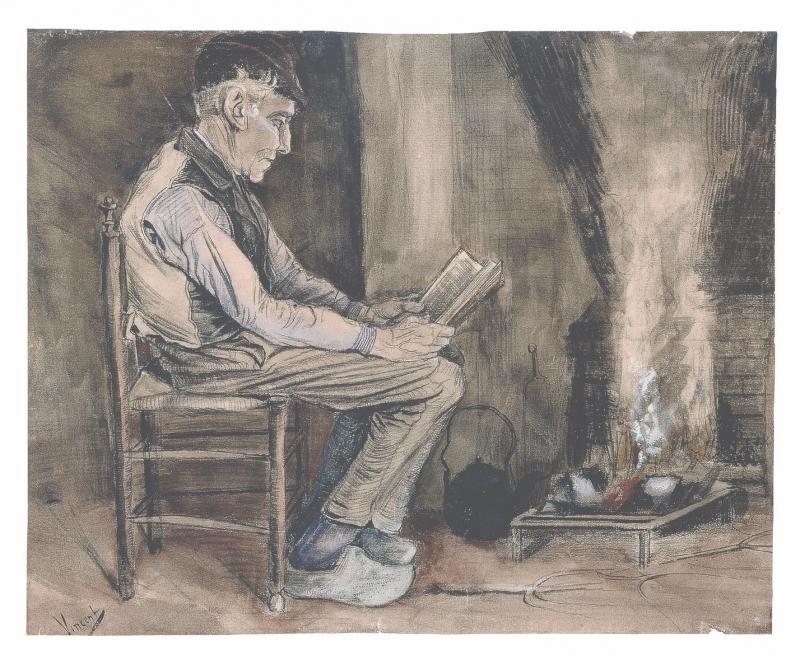

Some great recommendations here! Love this annual feature Neale!
Love the list and have some great TBRs to add to my own now! I also laughed out loud at Bud’s story. Excellent conclusion! Thanks for including my recs. Happy holidays!
Bud is the proverbial lump of coal that, once subjected to ungodly pressure, transformed into a sparkling diamond!
What a great idea! As an MLS ’79 alumni I’ve unfortunately never come across this McGill Reads Annual end-of-year list of suggested favourites. Very enlightening indeed. I love seeing them illustrated by such well-chosen paintings from the past. They add a distinctively decorative inducement to the avid reader wanting to seek out any of the many of the equally well-chosen books recommended.
Park Bagger – Adventures in the Canadian National Parks,
by Marlis Butcher (Nowak), B.Comm 1984 McGill U.
https://rmbooks.com/book/park-bagger/